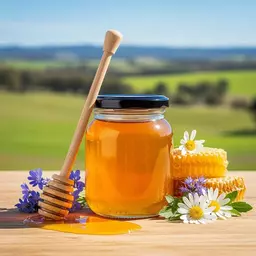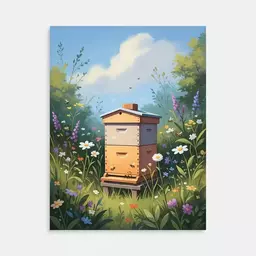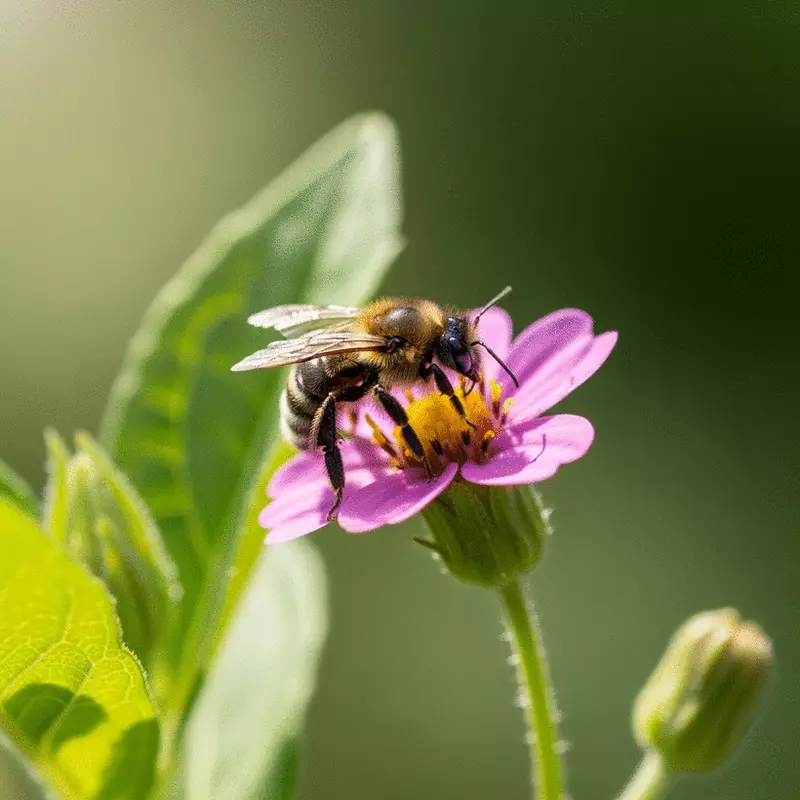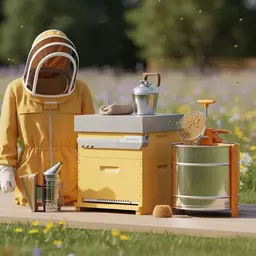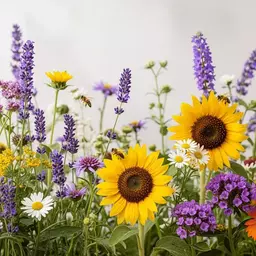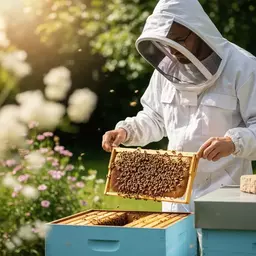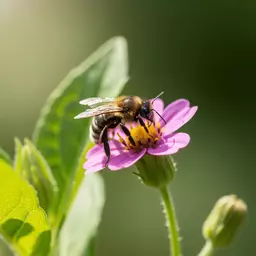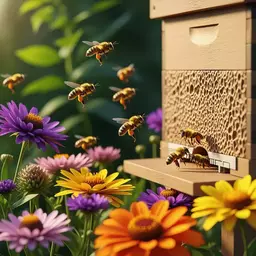Beginner Beekeeping Kits to Consider
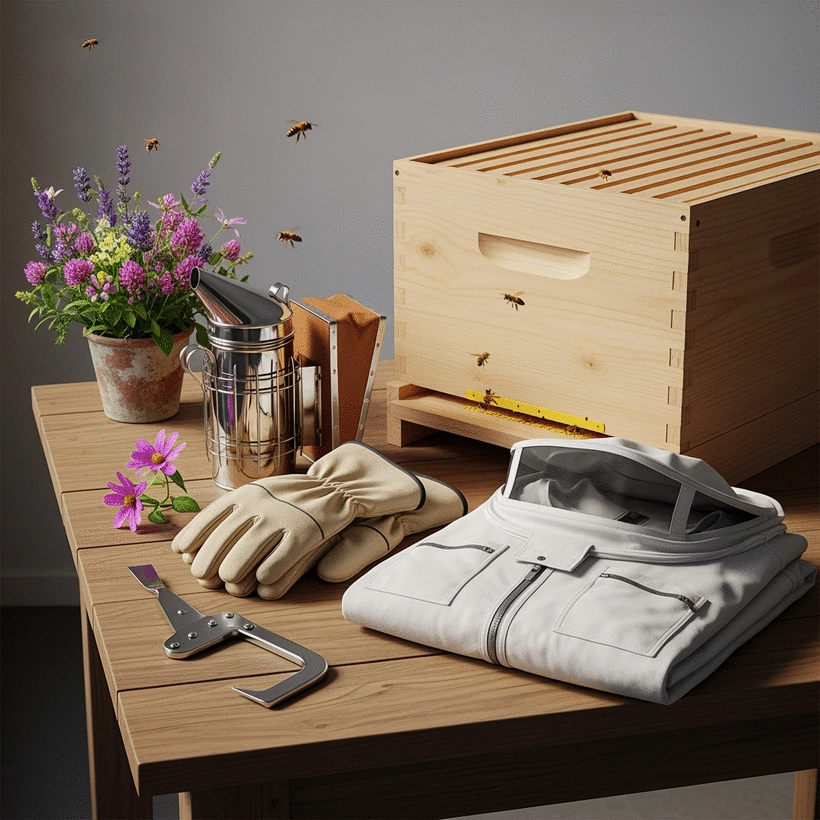
As beekeeping continues to gain popularity, many are eager to embark on this rewarding journey. A staggering statistic shows that one in three bites of food we consume depends on pollination by bees. This makes understanding beekeeping not just a hobby but a vital contribution to our ecosystem. Here’s what you will learn about starting your beekeeping adventure with the right tools!
What You Will Learn
- Beekeeping starter kits offer convenience, including all essential equipment and learning resources in one package.
- Choosing eco-friendly kits supports sustainable practices, benefiting both bees and the environment.
- Protective gear is crucial for safety; it allows you to focus on learning without fear of stings.
- Engaging with local beekeeping communities provides invaluable support and resources to enhance your experience.
Why Beekeeping Starter Kits are the Smart Choice
Starting with a beekeeping starter kit offers significant advantages, streamlining your entry into this rewarding hobby. The diagram below illustrates the comprehensive benefits and essential components found in these kits. For a deeper understanding of the basics, consider exploring a beginner's guide to honey bees.
Benefits of a Starter Kit
- ✓ Convenience: All-in-one package
- ✓ Cost-Effective: More affordable
- ✓ Learning Resources Included
- ✓ Quality Assurance: Curated items
Key Kit Components
- ● Beehive (Langstroth/Top-bar)
- ● Frames for Comb Building
- ● Protective Gear (Suit, Gloves, Veil)
- ● Essential Tools (Hive tool, Smoker, Brush)
Understanding Beekeeping Starter Kits for New Beekeepers
Starting your beekeeping journey is an exciting endeavor, and choosing a beekeeping starter kit can make all the difference! These kits are designed to provide everything a new beekeeper needs to get started, ensuring a smoother transition into this rewarding hobby. From convenience to cost-effectiveness, let's dive into why a starter kit might be the perfect choice for you.
One of the biggest advantages of starter kits is their comprehensive nature. They typically include essential equipment and educational resources that cover the basics of beekeeping. This helps novice beekeepers, like myself when I first started, to avoid the overwhelming feeling that can accompany learning a new skill. With all the necessary components gathered in one place, you can focus on what truly matters: your bees!
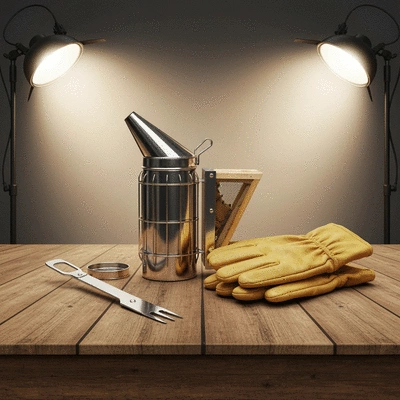
Why Choose a Beekeeping Starter Kit?
- Convenience: All-in-one packages save time and effort.
- Cost-Effectiveness: Often more affordable than purchasing items individually.
- Comprehensive Learning Resources: Many kits come with guides or online access to tutorials.
- Quality Assurance: Kits are typically curated to ensure all items are reliable and suitable for beginners.
When I first explored beekeeping, I found that having everything I needed at my fingertips allowed me to jump right in. I learned much faster and felt more confident in my decisions. Plus, many starter kits include resources that explain how to use the equipment, which is a huge help!
Key Components of a Beginner Beekeeping Kit
So, what can you expect to find in a typical beginner beekeeping kit? Let’s break it down into some essential components:
- Beehive: Usually a Langstroth or top-bar hive, which is the home for your bees.
- Frames: These hold the foundation for bees to build their comb.
- Protective Gear: Including a bee suit and gloves to keep you safe.
- Tools: Essential tools like a hive tool, smoker, and bee brush.
These items are crucial for setting up a healthy and productive apiary. Having the right equipment not only facilitates better bee care but also enhances your overall enjoyment of beekeeping. I remember unboxing my first kit and feeling like a kid on Christmas morning—everything I needed was right there! For tips on setting up your apiary, check out our guide on designing your first apiary layout.
The Importance of Protective Gear in Beekeeping
For anyone starting out, investing in good protective gear is a must! Not only does it ensure your safety, but it also helps you feel more comfortable around your bees. When you're not worried about getting stung, you can focus on learning and enjoying the experience.
- Bee Suits: Full body suits that protect your skin from stings.
- Gloves: Long gloves provide added protection to your hands.
- Veils: Protect your face and neck from bee stings while allowing visibility.
The right gear allows you to approach your hive with confidence. I can't stress enough how much my bee suit saved me from those initial jitters! It’s your first line of defense, and ensuring you’re suited up will help make your beekeeping journey far more enjoyable.
Pro Tip
When selecting your beekeeping starter kit, don't just think about the equipment. Consider the educational resources included as well. A kit with comprehensive guides or access to online tutorials can significantly enhance your learning curve and make your beekeeping journey even more enjoyable!
Supporting Sustainable Beekeeping Practices
As beekeepers, we hold a unique position in the world of sustainability. Choosing to support eco-friendly beekeeping practices not only benefits our beloved bees but also contributes positively to our environment! Embracing sustainable practices is essential for the health of our ecosystems, and it all starts with the choices we make regarding our beekeeping equipment.
Choosing Eco-Friendly Beekeeping Kits
When selecting a beekeeping starter kit, it’s important to consider brands that prioritize sustainability. Here are a few key features to look for:
- Renewable Materials: Kits that use wood from sustainably managed forests.
- Non-Toxic Treatments: Equipment free of harmful chemicals for both bees and users.
- Recyclable Packaging: Brands that minimize plastic and use biodegradable materials.
By opting for eco-friendly kits, you’re not just investing in your beekeeping journey; you're also making a positive impact on the planet! At Nectar Network, we believe that supporting these brands aligns with our mission to promote responsible practices. You can learn more about sustainable beekeeping for healthy hives in our dedicated article.
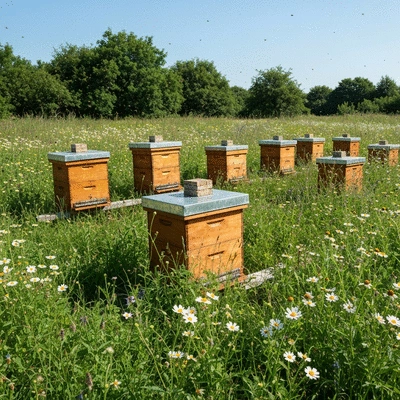
Ethical Sourcing and Its Importance
Understanding the source of your bees and equipment is vital for environmental impact. Sourcing bees and materials ethically helps maintain the health of bee populations and conserves biodiversity. Here’s why ethical sourcing matters:
- Healthy Bee Populations: Ethically sourced bees are more likely to be resilient and disease-free.
- Local Ecosystems: Supporting local breeders helps strengthen local bee populations.
- Reduced Carbon Footprint: Local sourcing reduces transportation emissions, benefiting the environment.
By choosing to support ethical practices, we can help ensure that our hives thrive while also protecting the delicate balance of nature!
Promoting Biodiversity Through Beekeeping
Did you know that beekeeping plays a crucial role in promoting biodiversity? Bees are vital pollinators that support the growth of many plants, including those that feed other wildlife! By integrating pollinator-friendly plants into our gardens and apiaries, we can enhance biodiversity in our communities. Here are some steps to promote biodiversity through beekeeping:
- Plant Native Species: Native flowers provide essential food sources for bees and other pollinators.
- Create Bee Habitats: Leave areas of your yard undisturbed to allow for natural nesting sites.
- Support Local Flora: Choose plants that are beneficial to both bees and local ecosystems.
By fostering a diverse range of plants, we can create a thriving environment for our bees and other wildlife, ensuring that future generations can enjoy a healthy ecosystem!
Engaging with the Beekeeping Community
Connecting with fellow beekeepers can greatly enhance your beekeeping experience. Engaging with the community not only provides valuable support but also fosters a sense of belonging within this vibrant world of beekeeping!
Finding Local Beekeeping Groups and Resources
One of the best ways to learn and grow as a beekeeper is to find local beekeeping associations. These groups often provide resources, advice, and opportunities for networking. Here are some benefits of joining local beekeeping groups:
- Knowledge Sharing: Learn from experienced beekeepers who can offer practical insights.
- Workshops and Events: Participate in hands-on learning and community activities.
- Support Network: Gain encouragement and support from fellow beekeepers during challenges.
At Nectar Network, we encourage newcomers to reach out and connect with their local beekeeping communities. Together, we can nurture our shared passion for these incredible insects!
Sharing Your Beekeeping Journey
Documenting and sharing your beekeeping experiences can be incredibly rewarding! By sharing your story, you not only inspire others but also contribute to the collective knowledge of the beekeeping community. Here are some ideas to get started:
- Create a Blog: Write about your beekeeping adventures, tips, and successes.
- Join Social Media Groups: Share photos and updates with fellow beekeepers online.
- Host Local Events: Organize hive tours or meetings to connect with others in your area.
Every experience, no matter how small, adds value to our community and helps foster a greater appreciation for beekeeping!
Participating in Beekeeping Workshops and Courses
Attending workshops and courses can significantly enhance your skills and knowledge as a beekeeper. These hands-on experiences provide fantastic opportunities to learn from experts and engage with fellow enthusiasts. Here are some key benefits:
- Hands-On Learning: Gain practical skills and confidence in managing your hives.
- Networking Opportunities: Build relationships with other beekeepers and industry professionals.
- Access to Resources: Discover valuable materials and tools that can aid your beekeeping journey.
Investing time in continuous education is essential for successful beekeeping, and it’s also a great way to stay connected with the community!
Frequently Asked Questions About Beekeeping Starter Kits
What is included in a typical beekeeping starter kit?
A typical beekeeping starter kit usually includes a beehive (such as a Langstroth or top-bar hive), frames for comb building, essential protective gear (bee suit, gloves, veil), and basic tools like a hive tool, smoker, and bee brush. Many kits also come with educational resources.
Why should a new beekeeper choose a starter kit instead of buying individual items?
Starter kits offer significant advantages for new beekeepers due to their convenience, cost-effectiveness, and comprehensive nature. They streamline the entry into beekeeping by providing all necessary equipment and learning resources in one package, often at a lower price than purchasing items separately. They also ensure quality assurance with curated items suitable for beginners.
How important is protective gear for new beekeepers?
Protective gear is crucial for new beekeepers. It ensures safety by shielding against stings, allowing you to feel more comfortable and confident around your bees. This comfort helps you focus on learning and enjoying the experience without fear.
What are eco-friendly beekeeping practices?
Eco-friendly beekeeping practices involve choosing kits made from renewable materials, free of harmful chemicals, and packaged in recyclable materials. It also includes ethical sourcing of bees and equipment, supporting healthy bee populations, and promoting biodiversity by planting native, pollinator-friendly species.
How can engaging with the local beekeeping community benefit a new beekeeper?
Engaging with local beekeeping communities provides invaluable support, knowledge sharing, and networking opportunities. New beekeepers can learn from experienced members, participate in workshops, and gain encouragement, which significantly enhances their learning curve and overall beekeeping experience.
Recap of Key Points
Here is a quick recap of the important points discussed in the article:
- Comprehensive Starter Kits: Beekeeping starter kits provide essential equipment and learning resources to help new beekeepers transition smoothly into the hobby.
- Importance of Protective Gear: Investing in quality protective gear, such as bee suits and gloves, is crucial for safety and comfort when managing hives.
- Sustainable Practices: Opting for eco-friendly kits and ethical sourcing of bees and equipment helps protect bee populations and promotes biodiversity.
- Community Engagement: Joining local beekeeping groups and sharing experiences fosters a supportive network and enhances the learning journey.
- Continuous Learning: Participating in workshops and courses provides hands-on skills and valuable insights for successful beekeeping.
